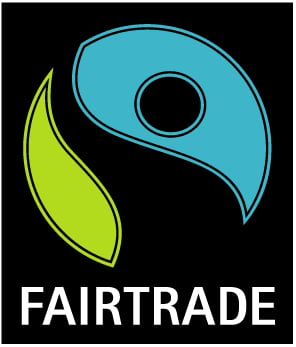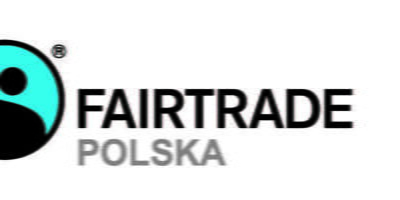

Features
Enslaved by free markets
Promising freedom to a select few, free markets appear to have enslaved the vast majority. Is this what we wanted? As Fairtrade Fortnight begins, Simon Leadbetter explores what free markets have ever done for us.
Julian Parrott’s recent article poured scorn on the bloated excesses of capitalism. Some readers can probably make a perfectly eloquent case for laissez-faire economics, or support the monetarist policies of the 1980s. You may work in private industry and take exception to some of the comments or profoundly disagree with the points made.
Promising freedom to a select few, free markets appear to have enslaved the vast majority. Is this what we wanted? As Fairtrade Fortnight begins, Simon Leadbetter explores what free markets have ever done for us.
Julian Parrott’s recent article poured scorn on the bloated excesses of capitalism. Some readers can probably make a perfectly eloquent case for laissez-faire economics, or support the monetarist policies of the 1980s. You may work in private industry and take exception to some of the comments or profoundly disagree with the points made.
However, Parrott’s article was a good primer for the debate we need to have about the kind of capitalism we want. Capitalism has many forms, with the US/UK Chicago School-style (smaller state) differing hugely from the Scandinavian brand (larger state). Both of which are being out-performed by Asian models dominated by the inexorable rise of state capitalism (the state is everything) in China and India.
The global economy effectively started its slow and subsequently rapid collapse in 2007, with Northern Rock being one of the first to go. The economy remains weak five years on. The Eurozone remains in deep crisis and the UK hovers over a double dip recession with public debt reaching £1 trillion and quarterly growth going negative at the end of 2011. The current system is clearly broken and a “business as usual” attitude cannot be the answer.
What is the point of free markets?
Put simply, the free market system allows goods and services to move efficiently between producers and buyers. Money in the form of cash, credit, debt or equity provides the instrument for exchange.
In theory, competition means that successful businesses that cost-effectively create products and services that people want secure more sales make greater profits and receive capital from investors to grow. Innovation is key, as fast-growth start-ups disrupt complacent incumbents, which forces them to adapt and improve or die. Again, investors play an important role by providing funds to these fledgling businesses, risking their money on the promise of future higher returns. Darwinism and capitalism fit together perfectly; the companies most able to adapt survive, while those who do not become extinct. This happens on a local, regional, national and international scale.
Free markets rely on a few basic foundations: the rule of law, an appropriately skilled workforce, social stability (to maintain markets in which to sell), and the confidence to invest. Free flow of information allows the ‘best’ product ‘win’ and anti-trust or fair competition laws ensure existing dominant players do not abuse their market position. Both are critical. Free markets also necessitate ‘moral hazard’, which simply means that if you take the risk, you gain the reward for success and pay the price for failure.
Conversely, the enemies of free markets are lawlessness, an unskilled workforce, social unrest, distorted information and a lack of moral hazard for key sectors of the economy.
Many free market thinkers despise the State, seeing it as a dead hand on the perfect functioning of markets. They see the role of the State as simply securing the borders and providing law and order to society, while vigorously protecting their intellectual property. Take this to the extreme and everything and everybody is for sale. From privatising health and education, selling over-sexualised products to eight year olds or weapons to oppressive regimes; it’s all the same for a true free market believer.
Clearly, this is not right. As Martin Luther King said, “It may be true that the law can’t change the heart, but it can restrain the heartless”. The State is concerned with the law and the wellbeing of society as a whole and we need a strong State to protect us from the worst excesses and moral vacuum of some aspects of capitalism. Values have to come into the debate at some point, but whose values and to what degree? Is this the capitalism we want?
Many commentators and business leaders take it as read that manufacturing will move to the developing world. They argue that the UK’s future lies in knowledge-based work as we lack the scale of a domestic market and the low cost workforce required by a manufacturing economy. We can create a sustainable economic model through intelligent innovations in services, science and technology, and the exporting of capital to invest in manufacturing elsewhere. While we agree that we need more people in education and training for longer as well as returning to education and training to be reskilled as new industries emerge, do we really want to participate in a race to the bottom where we pay increasingly less to people everywhere? Is this the capitalism we want?
Very few would argue that we are at risk of a period of great social unrest in the UK over the next few years. We are going through a period of unprecedented austerity where many of the losers are the poorest in society. Free markets need consumers and if a significant percentage of the population does not have disposable income, then many companies that rely on their custom will fail. The UK is the sixth largest economy in the world. Not bad for a small and windy island off the northeast coast of Europe. Do we really want parts of Britain to descend into a poverty, hopelessness and chaos that would put parts of the developing world to shame? Is this the capitalism we want?
Most people remain unaware of the propaganda machine built by the media industry and corporations. Every year, tens of millions are spent by large corporations profiling every action that we and our children take, all to inform an overly aggressive advertising industry whose capability to manipulate behaviour would make Goebbels proud. The aim? To make you unhappy with what you have, consume significantly more and replace goods more quickly. Do you really want corporations to decide what your child thinks and buys? Is this the capitalism we want?
The vast majority of media in this country is privately-owned and advertiser-funded, so we get the media the advertisers want us to have; he who pays the piper plays the tune. Similarly, patent-frenzy, oppressive libel laws, corporate sponsorship, advertising and political lobbying and their dependants in the media sit in a cosy cartel, guaranteeing that information is far from free-flowing, severely distorting the perfect operation of the market. Disruptive start-ups that could provide better products and services are silenced, crushed or bought. Do we really want large corporations and the pornographer/tax-exile owned press baron throwbacks to a long gone media age to control our news agenda and political discourse? Is this the capitalism we want?
And finally, moral hazard. A staggering number of new businesses fail in the first year with their owners losing everything. In that time, they will have spent money that flows into the economy, disrupted complacent incumbents and enjoyed both the stresses and elation of creating something new. These are the people who have risked all on the hope of gaining greatly. A small number succeed, grow, and are justly rewarded. An even smaller number go on to become the leading businesses of the future economy. Our friends in financial service, however, get the best of both worlds in a ‘heads we win, tails you lose’ model. Many commentators think investment banks were acting irrationally by taking spectacular risks, but in reality, their behaviour was entirely rational. Perhaps realising that they had become too big to be allowed to fail, they threw caution to the wind and bet our economy and the financial security of billions in the great casino called global finance. They have happily privatised massive profits for a few and nationalised massive losses for the many. Is this the capitalism we want?
So, what is the point of free markets?
To allow for the free flowing of goods and services and the increased wellbeing of everyone in society. We could not be further from this objective if we had originally set out to be.
For free markets to work, we must invest more in our workforce, give people a living wage to ensure a domestic market, break up all monopolies, demand honesty and transparency in advertising, and allow business of any kind to fail. If they are too big then, we should break them up or own them; after all, we, the taxpayers, are the ones taking risks as the stakeholders of last resort.
There are many companies and organisations doing exceptional work in building a more sustainable form of capitalism, such as the Fairtrade Foundation the Ethical Superstore for Fairtrade goods, Good Energy supplying 100% renewable energy, and our growing number of ethical IFAs who can help your money do more good than harm.


 Environment12 months ago
Environment12 months agoAre Polymer Banknotes: an Eco-Friendly Trend or a Groundswell?

 Features11 months ago
Features11 months agoEco-Friendly Cryptocurrencies: Sustainable Investment Choices

 Features12 months ago
Features12 months agoEco-Friendly Crypto Traders Must Find the Right Exchange

 Energy11 months ago
Energy11 months agoThe Growing Role of Solar Panels in Ireland’s Energy Future





























